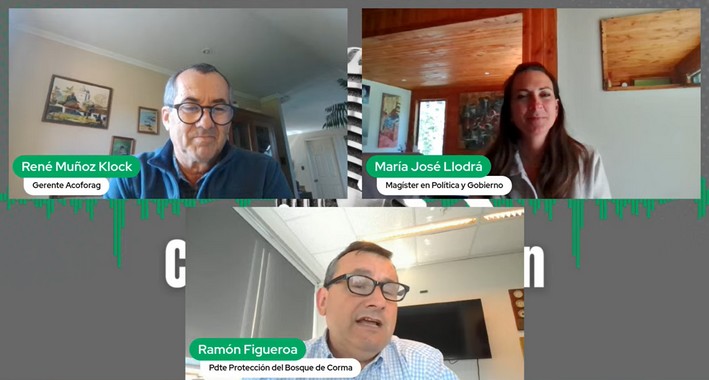The past wildfire season left a complex situation in Chile: nationwide, fires increased by 4%. However, the Biobío Region became an exception, showing a sustained decrease in occurrences. This was stated by Ramón Figueroa, president of the Forest Protection Department of the Chilean Wood Corporation (Corma), in an interview with Acoforag.
"Historically, Biobío has concentrated about three thousand fires per season, out of the seven thousand recorded in the country. Today we are around 1,200, and in the last season we managed to reduce it by an additional 16%. It's a positive sign, but it doesn't mean everything is solved," Figueroa stated.
The Weight of Intentionality
The leader warned that the type of fires affecting the region today has changed: "Nationally, 70% of fires are due to negligence and 30% are intentional. In Biobío, the proportion is reversed: about 60% of the incidents are intentional. That is worrying, because while fires caused by carelessness can be reduced through education and prevention, intentional ones require effective justice and respect for the rule of law."
On that point, Figueroa was emphatic: "All fires are crimes, both negligent and intentional ones. The problem is that in Chile, only about 1% to 1.5% of reported fires lead to a conviction. In Europe, that figure is around 15% to 23%. The difference is abhorrent."
The specialist attributed this gap to delays in investigative procedures: "Often the prosecutor's office arrives days or weeks after the fire, when there is no evidence left. Fire destroys everything, which is why quick action is needed to protect the scene."
The Case of Maule: An Example
Figueroa highlighted the work of the Maule Prosecutor's Office, where there is a preferential team for fires and a group from the PDI (Investigative Police) specialized in investigations. "That model has achieved more convictions than the entire rest of the country combined. It shows that when there is will and coordination, concrete results can be achieved," he noted.
Another critical point addressed by the leader was the accumulation of combustible material due to restrictions on controlled burns. "In ten communes of Biobío and in Los Ángeles, burning is prohibited from April to September. That means six years of accumulated fuel, which becomes a 'dynamic tie' for the region. If not managed, it will be a greater risk," he warned.
A Season Marked by Uncertainty
Looking ahead to the 2025-2026 season, Figueroa stated that there are no absolute certainties: "The forecast points to a spring with below-normal rainfall and a dry summer. But the most complex issue are the short-duration extreme events, such as heatwaves with temperatures above 40°C and intense winds. Those episodes exceed human capacity for control."
Finally, the president of Corma's Forest Protection emphasized that tackling the problem requires coordination and leadership: "Biobío has shown that with joint work between authorities, municipalities, private entities, and the community, progress can be made. But as long as intentionality increases and the justice system does not punish those responsible, the risk will remain latent."
The full interview on the Acoforag Youtube channel:







Comments (0)
No comments yet. Be the first to comment!
Leave a comment